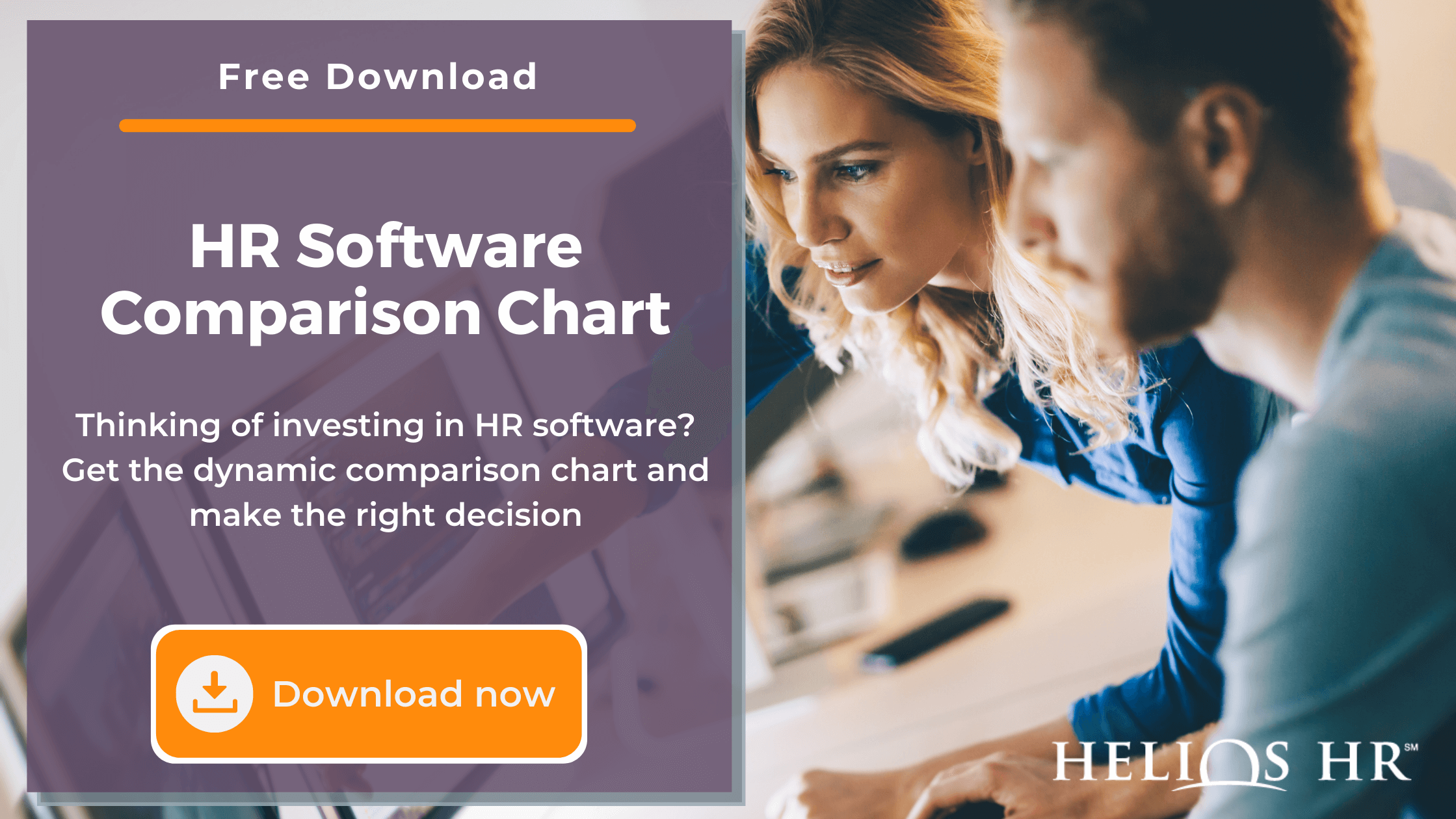By: Hannah Esbenshade on April 4th, 2025
The Best HR Software Investment Strategy for ROI
Choosing a new HRIS can be exciting. Each vendor promises to deliver incredible value. From streamlined processes to seamless automation, each platform offers to save your team time and money.
And this is true for the best HRIS systems out there. But if you pick the wrong one, or choose a solution that doesn't suit your needs, you could create a nightmare situation for yourself.
I’ve seen companies quickly sign a contract, go through an extended and rocky implementation process, and then quit using the system. It's money and effort down the drain. Thankfully, there are tried and true strategies to help you choose the best HRIS systems for your needs.
5 steps to selecting the best HRIS systems for ROI
In my experience with clients, the best HRIS systems implementations start with careful planning and stakeholder buy-in. The questions and steps below will build the foundation for your RFI and RFP process and contribute significantly to your return on investment.
1. Identify the basic HRIS requirements
To begin, start with the basics and determine fundamental optional requirements for the new HRIS. System demos can be sleek and exciting, and it’s easy to get swept up in the overall look and feel of a new HRIS. A list of requirements and “nice to haves” helps keep everyone on track and provides a mechanism to objectively differentiate between vendor products.
I also ask clients whether they’re considering keeping any current systems. Your business might have an existing system for timekeeping or applicant tracking that works perfectly fine and you’d like data to flow between this existing system and your new HRIS.
Communicate this up-front with all vendors you speak with and ask if they have any existing relationships with the current system. I recommend getting this information in writing from the vendor to help clear up any confusion in the future.
2. Budget for the cost of an HRIS
HR Systems can have different cost structures, so make sure you’re taking all costs into consideration when comparing with your allocated budget. Typically, vendors will charge a per-employee-per-month (PEPM) fee for core HR and/or Payroll services as well as a one-time implementation fee.
Additional charges are often added for supplemental modules such as applicant tracking or onboarding. Finally, HR vendors might charge additional fees for continued support services or, to create and maintain integrations between the system and external technology or benefits vendors.
3. Consider the users
Before contacting any vendors, you should have a basic understanding of your employee population and an idea of how they’ll interact with the new system. Think about the following questions and ask potential HRIS vendors how their other customers typically handle these situations:
- How many users will access the HR system?
- How technologically savvy are these users?
- Who will manage the system implementation?
- Who will oversee day-to-day updates?
- What do you want your employees to access within the HR system?
- Will terminated employees be added to the system for record-keeping purposes?
Implementing the system will require a significant effort from you and your team. think about who will manage systems updates and the day-to-day maintenance of the system. If you don’t already have someone with availability to take on this role, you may need to shift job duties around or consider creating a new position.
Related reading: The Complete Guide to HRIS and HR Software
4. Understand the HR system specifications and integrations
One of the biggest issues I encounter with HR system implementations is the data integration piece. Most HR systems on the market today offer multiple products or modules, all with different strengths and weaknesses. If you plan on keeping any existing HR software in place, it’s important to understand how data will be communicated between these systems moving forward.
Unfortunately, it’s not uncommon for vendors to promise seamless integrations with external systems when the reality is much more complicated. In fact, some systems don’t even offer completely seamless integrations between their own modules.
Your new HRIS might be willing to set up integrations with anyone but that doesn’t mean your existing system’s company feels the same way. Some vendors have agreements or integrations in place already whereas others will charge a hefty fee to create custom integrations.
Most large-scale HRIS technologies offer a marketplace of external vendors they partner or integrate with. Often the vendors listed offer ancillary HR products and services, like new hire background checks or screenings. If your business is considering a new background check vendor, job aggregator, or something similar, consider holding off until the new HRIS has been selected and you can take advantage of the system’s marketplace and existing relationships.
5. Get clarity on support services
The level of service and cost for support can vary widely depending on the company and product. When asking about customer service, make sure you understand the level of support available both during implementation and after going live.
An in-depth review of the various services available will help you and your team set appropriate expectations for the entire project. Ask the following questions and consider whether you’re comfortable with the answers.
- What are the response times during implementation and after?
- Are any segments of customer support or product engineering outsourced?
- Are different levels of support available? What are the costs?
- What will my implementation team look like?
- What will my support team post-go-live look like?
Finally, ask about the company’s history and how long their various modules have been in production. It can take years to work through the growing pains of a new product. A well-established HRIS will have strong processes and functionality in place with most major system glitches ironed out long ago.
Helios HR Can Help
There are many variables to keep in mind when deciding on the best HRIS for your business. Helios has a team of HRIS subject matter experts with years of experience in system selection, implementation, and optimization.
Need some help choosing the best HRIS systems? Book a no-obligation call with a Helios HR consultant and find out how the right system can transform your team.






